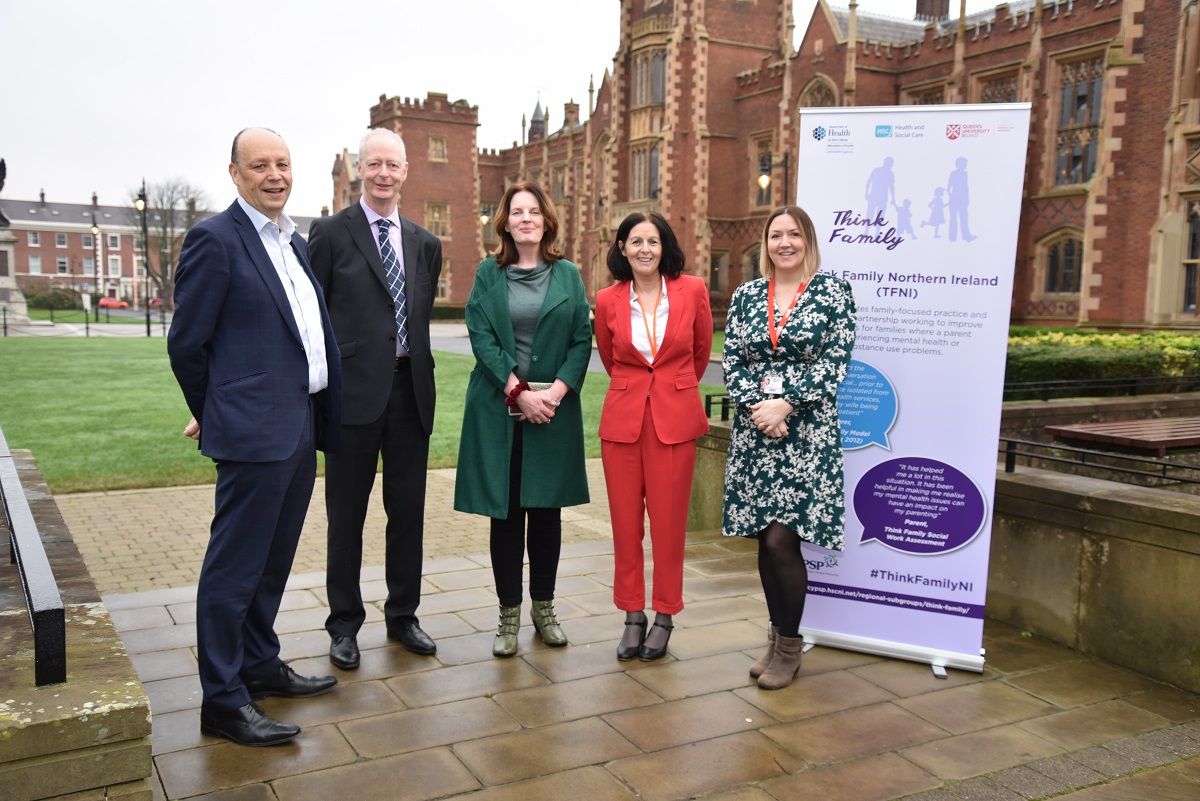A SYMPOSIUM showcasing support for parents who have mental illness or substance use problems and their families has held at Queen’s University Belfast.
Department of Health Permanent Secretary Peter May opened the third ‘Think Family NI’ (TFNI) symposium.
Chaired by Professor John Devaney, University of Edinburgh, the event was attended by almost 300 professionals from Health and Social Care (HSC), community and voluntary sectors and local academics.
The symposium was organised by the School of Nursing and Midwifery at Queen’s, in partnership with the Department of Health.
Clinicians and practitioners involved in TFNI, alongside leading mental health professionals and researchers from UK, Ireland, Canada, Australia and Norway, shared their lived experience of parental mental illness and key developments in family focused practice both locally and internationally. The audience also heard powerful and personal testimonies from service users and their families.
Speaking at the event Permanent Secretary Peter May said: “Too many people in our communities are struggling with mental ill health, which is impacting on their life choices and outcomes.
“Today gives us the opportunity to shine the spotlight on HSC professionals in Adult Mental Health and Children’s Services who help to ensure that those suffering from mental ill health or substance use problems will be able to access the services they need, when they need them. Through this event, we’re able to explore what we are doing well, what we can do better, and what we can learn from other parts of the world.
“I firmly believe in the power of partnerships in order to reach parents who need help and support. Different doors open when working in partnership. Having you all here today, thinking collectively about what is needed for families affected by mental health problems, is very significant and worthwhile.
“TFNI supports the Department of Health’s Mental Health Strategy 2021-31 which sets the vision and future strategic direction for mental health services in Northern Ireland over the next decade.
"We know that by providing effective mental health interventions early, the outcomes for individuals, unpaid carers and families are much better.
"This is the way to support our young people into the future and we look forward helping more families where a parent has a mental health and/or substance use problem.”
Dr Anne Grant, Lecturer in Mental Health from the School of Nursing and Midwifery at Queen’s University, added: “As a result of improved support and treatment, individuals with mental illness are more likely than previously to take on a parenting role.
"Parental responsibilities may negatively and positively affect their mental health and recovery, and conversely parents’ illness may impact on children’s wellbeing.
"For that reason, a focus on family relationships is crucial for all those involved in mental health care within statutory, community and voluntary services.”








